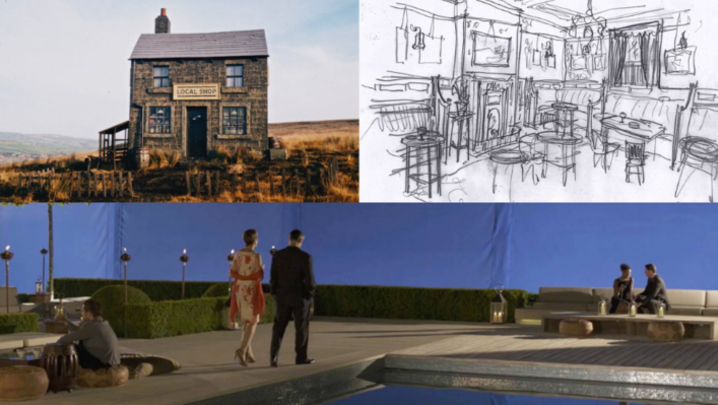Charles Gurassa’s business credentials are beyond question, says Maggie Brown. But will he succeed as Channel 4’s chair?
There is never any shortage of top-quality candidates competing to land the job of chairing Channel 4, but Ofcom looks to have played a shrewd hand by appointing an unsullied newcomer to this key role.
Businessman Charles Gurassa is personable and speaks calmly and quietly. He has none of the overriding self-importance common to those as successful as this veteran of the travel industry and several bruising corporate battles.
Gurassa, who celebrated his 60th birthday in February, was appointed as the seventh Chairman of Channel 4 in January. Fears that he was picked solely to facilitate a sale of the company have evaporated – although its future as a publicly owned broadcaster remains uncertain under the current Government.
The doubts that linger over his appointment are whether he is a sufficiently heavyweight public figure to fight for the channel’s interests in the brutal Westminster world.
A previous defender of Channel 4 said: “He is clever, and the airline industry is always very, very political. But is he well connected enough and a canny political operator in a sector like broadcasting where, unlike Michael Grade, he doesn’t know anyone?”
The indications so far are that Gurassa is settling well in Horseferry Road. His relationship with CEO David Abraham is believed to be good and he seems to be adopting the role of a constructive critic who can encourage creative ambition.
Until 2003, when he retired from full-time executive roles, Gurassa’s career was spent primarily in the travel and tourism industries, and, as Deputy Chair of easyJet, he is still linked to the sector. In the airline’s founder, Sir Stelios Haji-Ioannou, he is used to dealing with a restless shareholder.
The central issue for Gurassa and Channel 4 is the sapping uncertainty regarding its future ownership and business model. This unresolved policy issue is entering a second year and inflaming the UK’s independent production sector.
The May Government has opened a new chapter, installing Karen Bradley and Matt Hancock at the Department for Culture, Media and Sport – though Hancock worked with the previous culture secretary, John Whittingdale, considering options for privatising Channel 4.
Lord Burns, Gurassa’s predecessor and a Whitehall insider, made a misjudged intervention during 2015 with his plan to turn Channel 4 into a coupon-paying mutual company. The idea failed to gain traction and, arguably, fanned the privatisation case.
"He is clever, and the airline industry is always very, very political, but is he well connected enough?"
In fact, Gurassa is not without Westminster connections: he knows Lord Best, Chair of the House of Lords Communications Committee. In July, the committee published a hearty dismissal of the case for privatisation.
Best told Television: “We found him [Gurassa] fiercely opposed to privatisation. He was extremely impressive.” An observer at the Westminster Media Forum in mid-July said: “[Gurassa] is more energetic than Burns, not so safety first. He wants to spend some of Channel 4’s cash pile. And, in age, he is far closer to David [Abraham], who is 53”.
At the Culture, Media and Sport Committee hearing in June, which examined Channel 4’s 2015 annual report, Gurassa reiterated that, overall, he remained “very impressed” by the broadcaster. He said it was “pretty well run” but voiced concern over the lack of succession planning (Abraham has led Channel 4 since May 2010).
Asked whether, given C4’s healthy reserves, it could return a dividend to the Treasury, he stressed the need for it to use its money prudently. He said the channel was examining how it could use its resources to “deliver our remit even better”, to increase its support to the UK’s creative industries and, thirdly, to up its investment in digital.
Despite the possibility of a post-Brexit recession, the new Chairman believes that Channel 4 needs to be less financially cautious. The broadcaster holds cash reserves worth more than £200m, a £100m freehold central London HQ and the ability to borrow up to £200m.
He talks of its “brilliant” flexible business model, comparing favourably its use of external contractors to supply programmes with the heavy running costs of airlines, which have aeroplanes sitting on the tarmac in need of servicing, not always flying.
Gurassa gained his first business credentials reading economics at the University of York, after a childhood in north London, where he attended Christ’s College, a boys’ grammar school in Finchley. His unusual surname derives from a French forebear who married a Londoner after the First World War. “We’re on the World Wildlife Fund’s endangered species,” he jokes.
He joined Thomas Cook as a graduate trainee in 1978 and, as general manager of retail, travelled to the US, Hong Kong and mainland China. He took an MBA in Hong Kong, where he was the only Englishman alongside nine Chinese. “[A] fantastic experience, I have a deep affection for China,” he says.
Hong Kong also gave Gurassa a brush with cable television: he presented six Thomas Cook-sponsored holiday shows, in the vein of Wish You Were Here…?
In 1989, in his early thirties, Gurassa was headhunted by British Airways; there he became head of worldwide sales and, later, its director of passenger and cargo.
“I always think we’ve been put on earth to make it a bit better. That was the zeitgeist of growing up in the 1960s in London.”
A decade on, he became CEO of Thomson Travel Group, assisting with its sale to the German Preussag company, rather than allowing it to fall to a hostile bid from Lufthansa. With the business rebranded as TUI and now living in Hanover, Gurassa chaired its European division.
In 2003, buttressed by a bonus, he decided to pursue a portfolio career, feeling this would better suit family life. His experience since then has been impressive and varied, with work commitments that include not-for-profit and charity posts as well as commercial activities.
“I always think we’ve been put on earth to make it a bit better,” he says. “That was the zeitgeist of growing up in the 1960s in London.” He served at the National Trust in roles that included being Deputy Chair for nine and a half years.
Fiona Reynolds, BBC non-executive director and former NT Director General, has said of him: “I loved working with Charles… he was incisive, clear, constructively challenging and passionately committed to the cause.”
He continues to sit on the board of English Heritage and is working to establish the UK’s first Migration Museum.
Gurassa was Chair of Virgin Mobile when it was sold to NTL in 2006. He also chaired Lovefilm before it became Amazon Prime.
Less happily, he is the senior independent director at Merlin Entertainments, listed on the stock exchange in 2013, but engulfed in compensation proceedings following the crash of the Alton Towers ride last year.
He now splits his time between a home in Notting Hill and holiday place near Lucca, Tuscany, where he cultivates a small vineyard.
His Channel 4 appointment surprised everyone, including the broadcaster’s board. So far, he has sidestepped questions from MPs about whether he would resign if the Government chose to back privatisation. One reason for this is almost certainly because, since Channel 4’s constitution is based in statute, change would not be achieved quickly.
“I knew [Channel 4] as a consumer,” he says. “It matters hugely, [as] an important, different voice.”
Whatever the future for the broadcaster, Abraham is now in his seventh year as its CEO. At some point, Charles Gurassa will be the person who hires Abraham’s successor.






